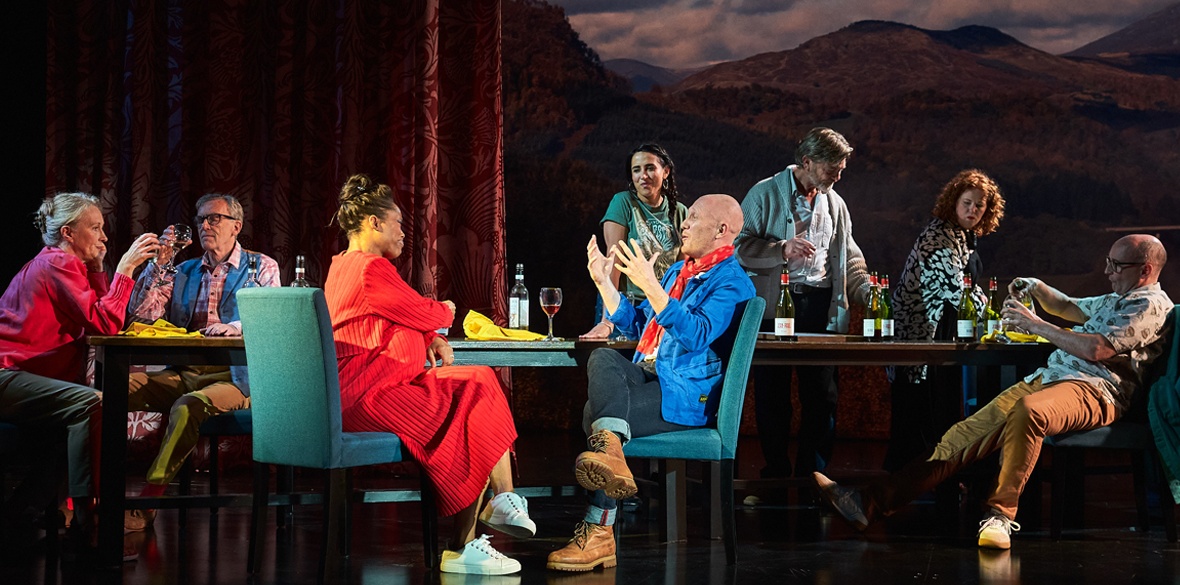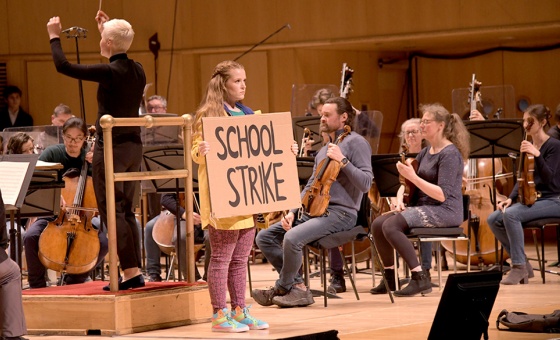This is the last article you can read this month
You can read more article this month
You can read more articles this month
Sorry your limit is up for this month
Reset on:
Please help support the Morning Star by subscribing here
Group Portrait In A Summer Landscape
By Peter Arnott, Royal Lyceum Edinburgh
THIS is an extraordinary play. It equates the inability to grieve with the loss of faith in socialism, and demonstrates at a human level how this paralyses the ability to act or think politically.
A loose family group assemble at a house in rural Scotland in the summer before the independence referendum, and the dialogue captures the way that binary choice, yes or no, infiltrated conversations and lives.
Unlike the Brexit vote two years later, that channelled anti-establishment rage and was led by the right to a majority, playwright Peter Arnott’s characters are situated within the hesitant ambiguity of the Scottish left. They may have been Marxists once, but they express neither working-class resentment nor a confident vision of the future.
After all, Scots had three years to consider the choice and a government committed to independence, and there was articulate advocacy for an independent socialist country in a way that is conspicuously absent today, and it is this contemporary view that is reflected in playwright Peter Arnott’s version of the past.
It is, on many levels, a play about the perils of memory: both our memory of the past as a democratic country, and the characters’ own unresolved view of past trauma.
That his characters hold convincing political and class positions, and that persuasive dialogue is made of their interaction is greatly to Arnott’s credit. In a political atmosphere that divided families and communities his group just about maintains the ability to speak to one another, and ultimately it advocates a gradual path to national autonomy — something like federalism — a position largely unarticulated by current political parties.
But its genius as a drama is to take you somewhere else entirely, as though the referendum were just “politics of the day” and a topic that allows the characters to avoid addressing the elephant in the room: in this case the premature death of the oldest son that has paralysed the characters’ relationships.
The ghost is ever present on stage, organising the props of his mother’s ritual breakfast and choreographing the memory of his parents’ former happiness. His sister, who has had affairs with two of their father’s students, points out shockingly, and convincingly, that since his death the family have been unable to communicate.
Just as the underlying theme of “unspeakable” child abuse underlies Irvine Welsh’s Crime, so the inability to grieve and move on underlies this play to an unexpected and profoundly moving extent. But even that is itself a way of not talking about the strange death of socialism. As one character points out: “You’re an old man making poetry out of having nothing to say...”
As an ensemble piece the cast are all excellent, lead by the embattled stoicism of John Michie’s George Rennie; the direction (David Greig) and design (Jessica Worrall) economic and deft. The tableau are organised as if within a light-touch watercolour depicting a family group.
And the drama — apparently political — is in fact a compassionate, accurate and cathartic study of dysfunctional and disempowered people, and their miscommunication.
It is still very funny (“I’m gay, Catholic and Irish... no part of the people wants me!”), very dramatic, and in its Scots Chekhovian way, very poetic. It is a reminder that live theatre can take you into unexpected places with a sure moral and political compass, unlike any other medium.
Runs until October 14. Box office: 0131 248 4848, lyceum.org.uk











